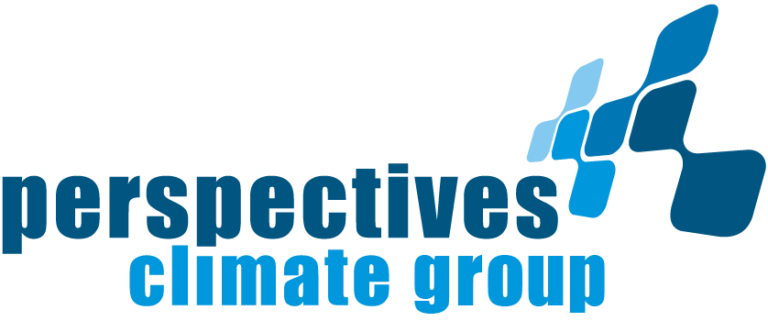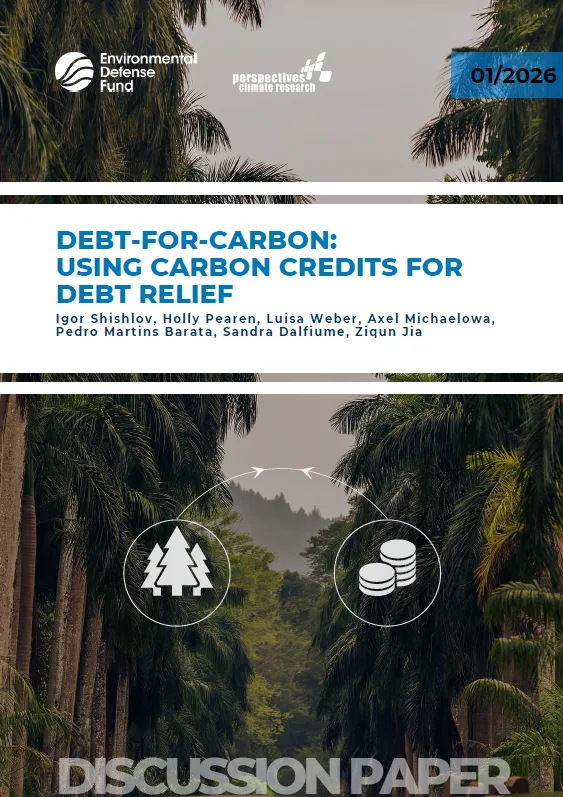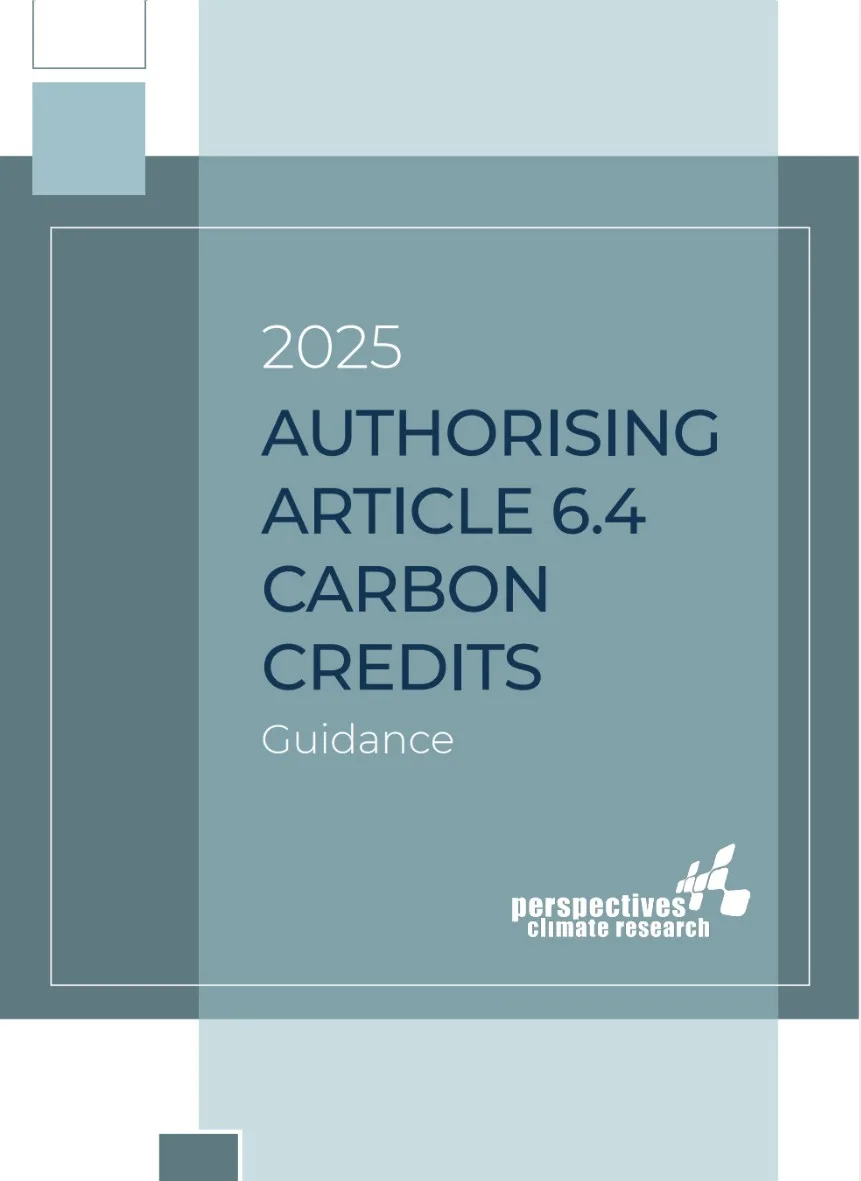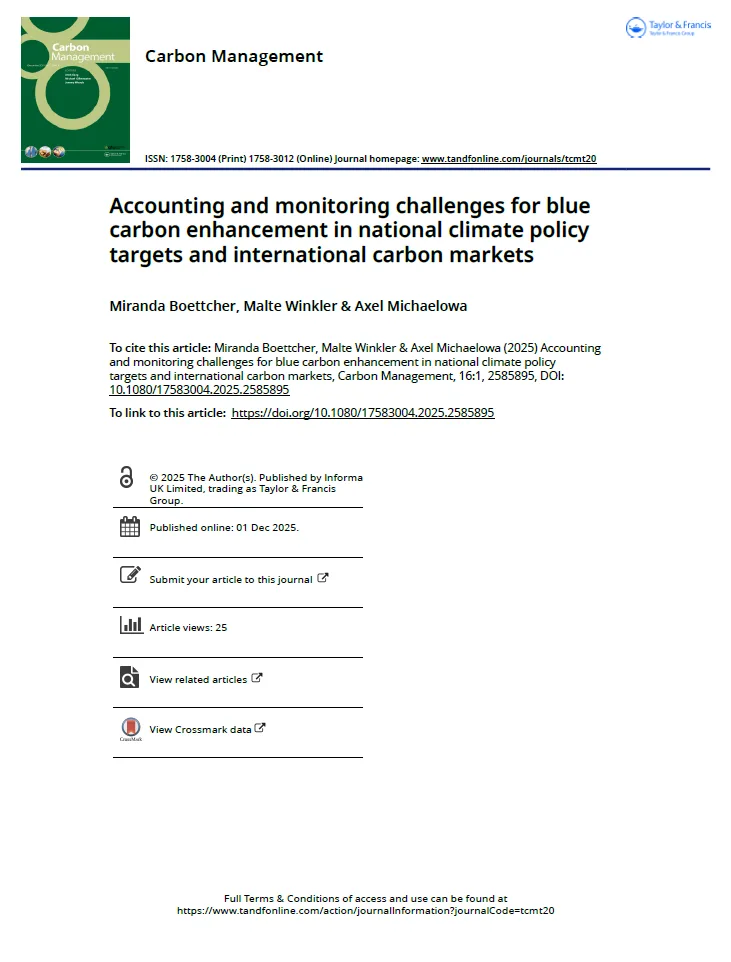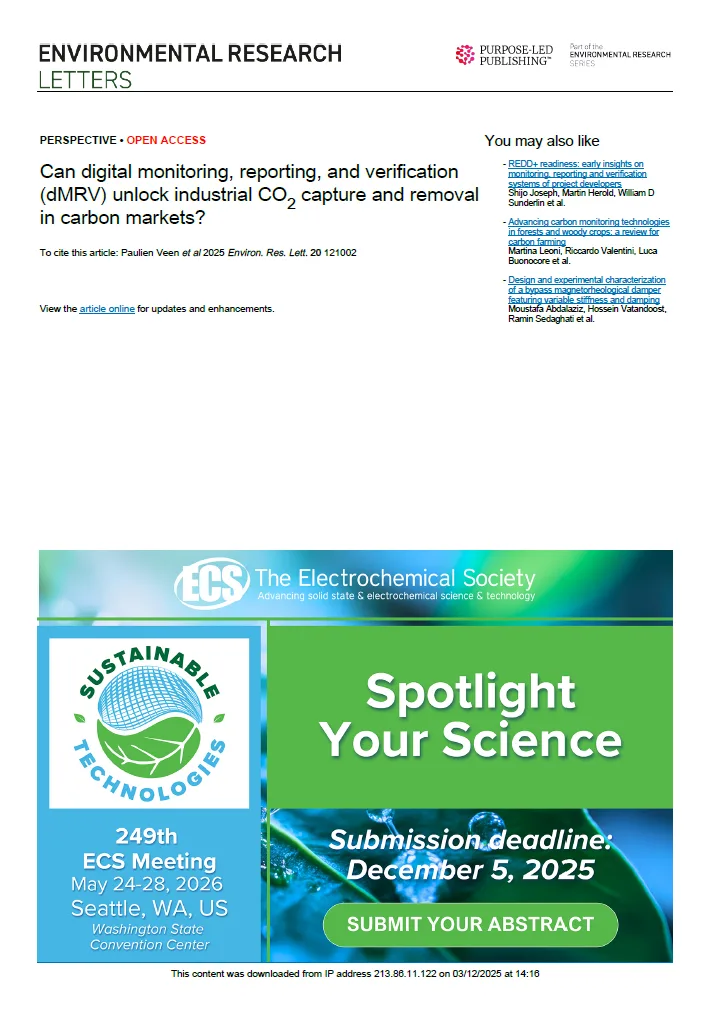Publications >>
Catalysing private and public action for climate change mitigation: the World Bank’s role in international carbon markets
Publication Date: 07-2020
This policy analysis examines the role of the World Bank in shaping and stimulating international carbon markets. Adopting a public choice perspective, we argue that its engagement can be understood as a response to the joint goal of reputational and financial benefits. The detailed empirical account of the Bank’s activities – from its pioneering role through the Prototype Carbon Fund in the early 2000s, to its initiatives for upscaled crediting subsequent to the 2015 Paris Agreement – is broadly in line with this interpretation. The period between 2005 and 2011 most clearly shows that the Bank was ready to forego some reputational benefits for the sake of financial benefits. During this period, it followed a flourishing privately driven carbon market, mostly competing with, rather than catalysing, private activities. After the Paris Agreement opened the door for a new phase of carbon markets, the Bank again took up a pioneering role, now focusing on the public sector. However, since transparency in relation to its activities is limited – thus reducing reputational risk – these activities may not meet the quality standards, notably with respect to additionality, that are a precondition for carbon markets to be an effective tool for climate change mitigation.
No related team members found.

